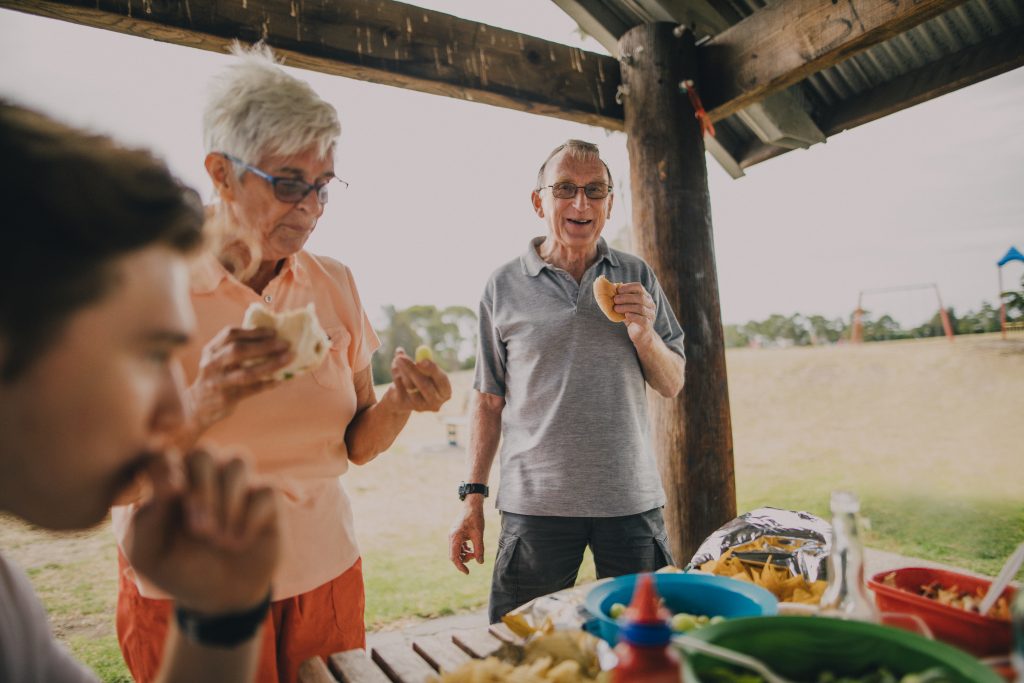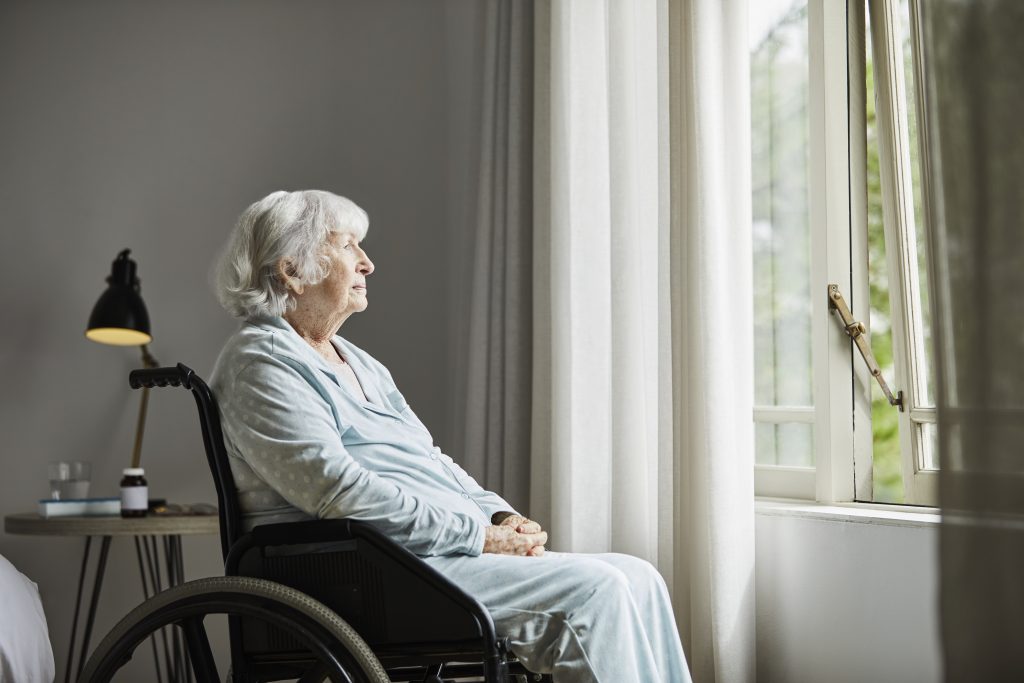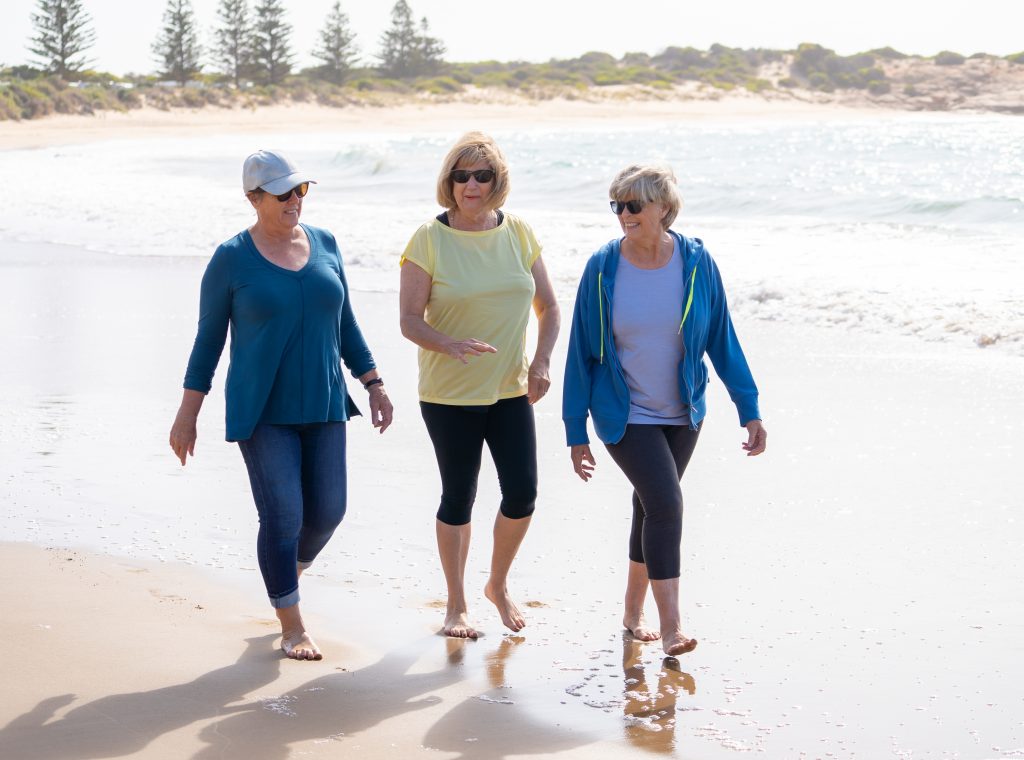
While public health issues have been foremost in the global fight against COVID-19, public policies are only now exposing the full consequences of this international scourge. And for more than a third of older Australians, isolation – not health concerns – was the biggest problem.
The COVID-19 pandemic’s impact has been broad and deep. While immediate public health issues have, rightly, been front and centre, public policies are only just determining the broader implications of this global disaster.
New research from Monash Business School’s Centre for Health Economics shows that since the COVID-19 pandemic hit, the wellbeing of many older Australians has significantly dropped, with nearly a quarter feeling life had become worse, and more than a third saying they had suffered from the social isolation imposed on them.
“The COVID-19 outbreak has substantially impacted the daily lives of people across the world. Globally, the risk of serious illness from COVID-19 has been in the older age groups,” Associate Professor Gang Chen from the Centre for Health Economics says.
“This is why health authorities have strongly recommended for older adults over 70 years old to self-isolate at home for as long as practicable. However, social isolation could also be a serious public health concern, in that social disconnection puts the elderly at greater risk of depression and anxiety.”
Starting in April last year Associate Professor Chen and co-author Jan Abel Olsen conducted a study which shows why it is important for policymakers to understand older Australians’ experiences of the pandemic.
Isolation a big concern
Researchers interviewed 1000 older adults about their standard of living; personal health; achievement in life; personal relationships; community connectedness; personal safety; daily living activities; future security and life as a whole. “We ask them a series of hypothetical scenarios and then derive the relative importance of key life aspects,” Associate Professor Chen explains.
They were asked about the personal effects of COVID-19: “To which extent have any of the following circumstances in your life been affected by the…pandemic?”, ranging through five responses from ‘much worse’ to ‘much better’.
Surprisingly, while health is often a top factor for older Australians, it was community connectedness that received the largest negative hit (33.9 per cent).

For older Australians, community connectedness was most negatively impacted during the pandemic.
Understanding what matters the most to older Australians
“The COVID-19 pandemic represents an (external) shock that has major impacts on individuals’ wellbeing. We investigated to what extent this shock had on different life domains and how they impacted life satisfaction, and in particular which life domains are hardest hit,” Associate Professor Chen says.
Personal health, personal relationships and standard of living were the top three most important domains for older adults, the results indicate.

Older adults reported significantly lower health-related quality of life when compared to the Australian norm.
Are you concerned about COVID?
Asked whether they were “concerned about coronavirus (COVID- 19) in Australia?”, a surprising number – 26 per cent – responded ‘not at all’ or ‘slightly concerned’; although 32 per cent were ‘moderately concerned’, and 42 per cent ‘significantly or extremely’ concerned.
But it was community connectedness that appeared the worst affected; Around one third (33.9 per cent) of respondents reported (somewhat/much) worse and 4.6 per cent reported much worse.
Associate Professor Chen also said older adults reported significantly lower health-related quality of life when compared to the Australian norm.
“Among the older adults who perceived a negative impact from COVID-19, there were significantly lower health utility and life satisfaction scores than those who perceived no impact.”
Life has become worse under COVID
The research shows that overall speaking for life as a whole, 22.3 per cent of respondents reported their life had become worse, with 1.3 per cent reporting it had become ‘much worse’.
The table presents the percentage of respondents who reported negative, positive or no influence on life domains and life as a whole.
Among eight life domains, personal health appeared the least negatively affected by the pandemic; 11.6 per cent of respondents reported their health became (somewhat/much) worse owing to COVID-19, among them, only 1.4 per cent reported much worse.
Policy implications
Associate Professor Chen says it is important for policymakers to understand that this study has revealed a significant decline in the wellbeing outcomes of older adults during the COVID-19 pandemic in Australia.
It is largely because of the risk facing those in the older age groups that monitoring and promoting the wellbeing of the elderly becomes increasingly important during the COVID-19 pandemic, he says.
“It is clear from the results of this study that it is vital for any policy interventions to focus on maintaining or improving personal health, personal relationships, and standard of living – these should be prioritised,” Associate Professor Chen says.
“Building and promoting resilience and neuro-cognitive health would also be beneficial for the healthy ageing of older adults.”
Associate Professor Chen has been working on a number of research projects aimed at creating a new tool for helping policymakers understand what matters most to Australians.


